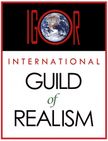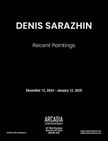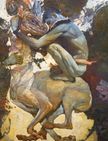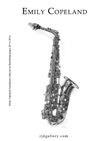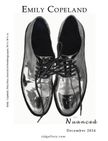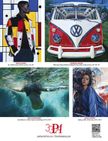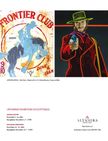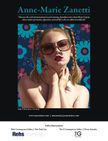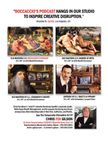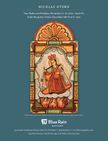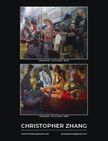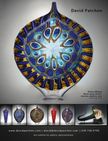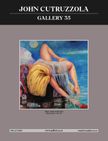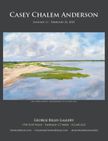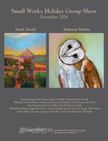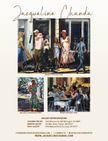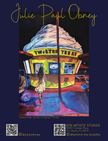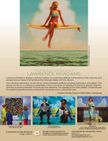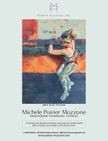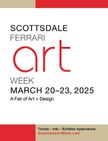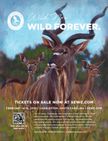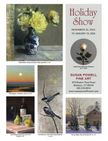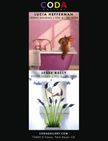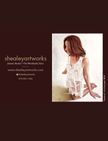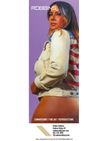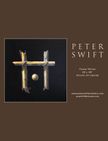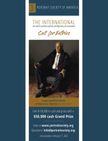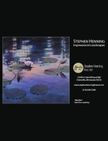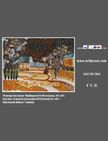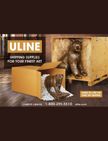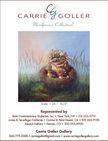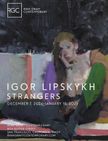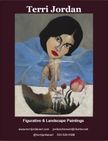The detail in Emily Copeland’s charcoal drawings is so incredibly high that when she posts her work online, there is a certain skeptical tone from people who aren’t familiar with her astonishing works. Scan through the comments and you’ll see two oft-repeated slights: “This is a photo” or the 2024 equivalent, “This is AI.”

Perfume Bottle, 2024, charcoal on Stonehenge paper, 34 x 31½"
Copeland is undeterred, and when she’s not working on a new piece she turns her attention to educating viewers about high-level, ultra-detailed charcoal drawings. “I have to emphasize these are drawings—not photos and certainly not artificial intelligence,” she says. She’s been posting her work on some of the art boards on Reddit, where the playful, eye-rolling snark runs high. “This is a drawing,” she types. The first comment tends to be, “No, this is a photo of a drawing.” Eye-rolling, right? But then the conversation slides into the process, the detail, the time it takes (long) and all the nuance that comes with charcoal, and soon the Canadian artist is winning over new viewers.
For Copeland, any opportunity she has to share her work, and educate viewers, is a chance for her to shower love on this medium she loves and has excelled so thoroughly at. She will have a major opportunity beginning December 1 when Nuanced: Emily Copeland and the Art of Making a Mark opens at RJD Gallery in Romeo, Michigan. The show will feature 15 pieces, including five from the past year. One of them is Perfume Bottle, a staggering achievement of patience, skill and perfection.

Saxophone, 2024, charcoal on Stonehenge paper, 50½ x 29"
“I’ve found glass to be very challenging. Glass turns out to be too grayscale. I like to have the dark darks and light lights, but so much of glass is light gray. I had avoided these types of objects, but then I found this perfume bottle. I could see all of the depth and shine. It was exciting,” she says. “Your mind wants to draw something smoother in the glass, but it wouldn’t have the same effect. The trick for me, and it’s harder than people might realize, is to draw exactly what I see. Not what I think I see, but what I do see.” She relates it to the grade-school art assignment of drawing an apple. Your brain knows what an apple looks like, so it has the tendency to go into autopilot by drawing that image already programmed in your brain. But Copeland would urge artists, grade-school age and beyond, to ignore the apple and focus on one piece of it: a curve on the edge, imperfections in the shape, the abstract coloring of the skin, the top as it dips down to meet the stem. “Some artists will flip the picture upside down,” she says, “just so they don’t let the object play tricks with them.”

Opera Binoculars, 2024, charcoal on Stonehenge paper, 31 x 38"

Scales, 2024, charcoal on Stonehenge paper, 43 x 46"
Her tool is a charcoal pencil, but also an eraser, but it is not used like a typical eraser. She doesn’t use it to remove imperfections or mistakes. Rather, it’s used as a tool to manipulate her charcoal marks. “The eraser is just as important as any other tool I use. I have these really great ones that don’t leave marks and you don’t have to blow away the little pieces. You basically kneed it into the shape you want and use it to lighten an area,” Copeland says. “I can flatten the eraser and then use it like a brush. Others are smaller and used for more detailed areas. There are other tools for blending, but I’ve found they can turn everything gray, so I have learned to blend without smudging.”

Cowboy Boots, 2016, charcoal on Stonehenge paper, 38 x 31"
Some charcoal artists use a white pastel to create highlights amid the black marks, but Copeland enjoys the pure charcoal look. She achieves highlights by using her pure white paper, which shines through the charcoal as she needs it. “I made the mistake when I was quite a bit younger to use a cream-colored paper. I didn’t realize until I started doing the highlights that the paper wasn’t white. I’ve seen artists work on gray paper, and some use the white pastel or charcoal, but I find something lovely with my objects on a white background,” she says, adding that keeping the paper white and clean is a challenge in itself. “People come over and they instinctively want to touch the paper, which can leave marks. I’m very protective of the paper until it’s done.” Copeland mounts her paper directly to her studio wall, which allows the charcoal dust to fall straight down onto the floor and not onto the paper. If she used a drafting table or other flat or sloped surface, the charcoal would smudge the paper and create an unfixable mess.

Vintage Lantern, 2018, charcoal on Stonehenge paper, 42 x 30½"

Antique Revolver, 2019, charcoal on Stonehenge paper, 30 x 44"
Other works in the show include Saxophone, which has the brassy shine of a real saxophone, except there is no brass or shine—just charcoal. In Opera Binoculars, Copeland expertly draws the mother of pearl tubes that contain the glass elements of the binoculars. “Mother of pearl is very difficult. Everything is black and white in the drawing, so the real object doesn’t translate over accurately. It can feel a bit like magic. Mother of pearl is hard because it’s all pretty abstract once you get down into the texture and look. It’s fluid and feels like movement,” she says. “It had to have texture, but also be smooth. By the end, I felt that I had really grown into the skill I was developing in the work. I enjoyed it.”
Nuanced: Emily Copeland and the Art of Making a Mark will remain on view at RJD Gallery through January 4, 2025. —
RJD Gallery
227 N. Main Street • Romeo, MI 48065 • (586) 281-3613 • www.rjdgallery.com
Powered by Froala Editor





